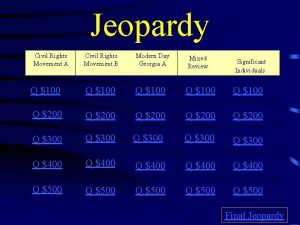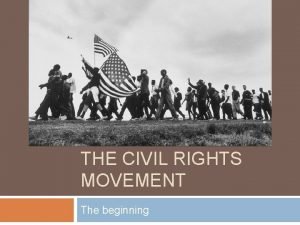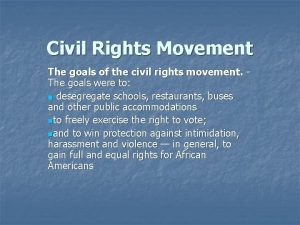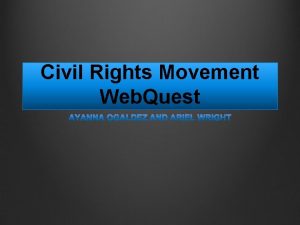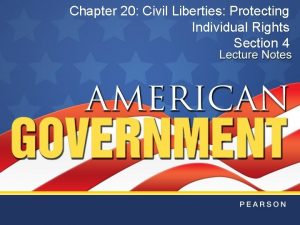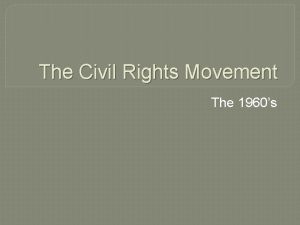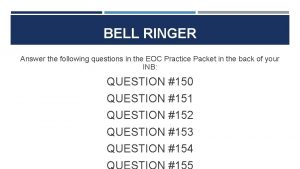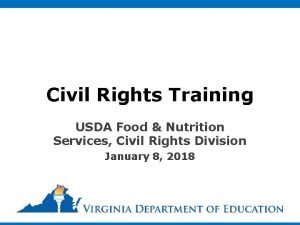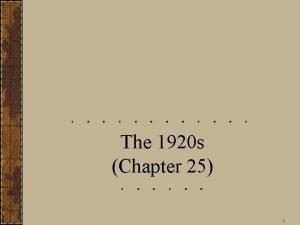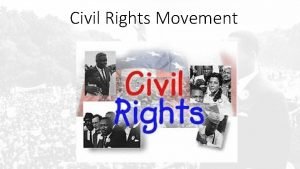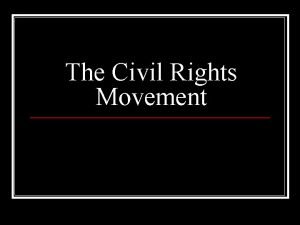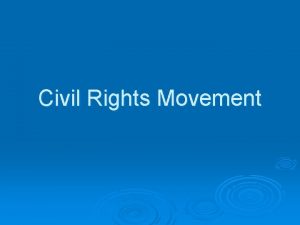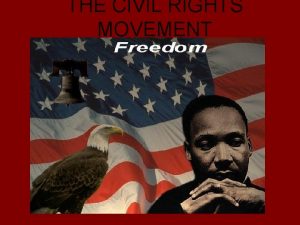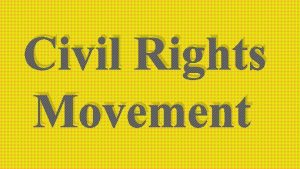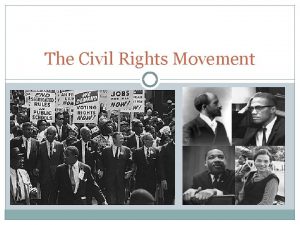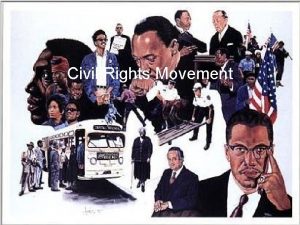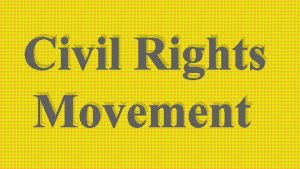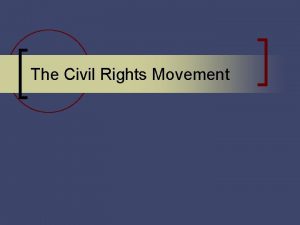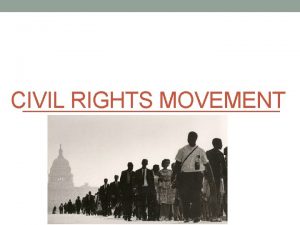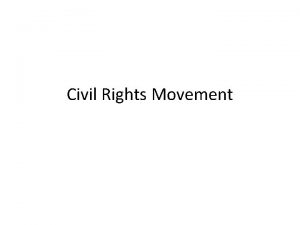THE CIVIL RIGHTS MOVEMENT The Civil Rights Movement















- Slides: 15

THE CIVIL RIGHTS MOVEMENT The Civil Rights Movement Begins

BROWN v. BOARD of EDUCATION (1954) African American girl sued for the right to go to the school of her choice – and WON! Ruling overturned the ruling in Plessy v. Ferguson case and outlawed segregation in public schools

BROWN v. BOARD of Supreme Court ruled EDUCATION segregation of public schools was unconstitutional Ruling gave improved educational opportunities to African Americans

BROWN v. BOARD of EDUCATION NAACP attorney Thurgood Marshall (center) argued the case to end segregation Marshall later became the first African American on the U. S. Supreme Court

The Movement Begins Rosa Parks refuses to move to the back of the bus Parks is arrested, leading to the…

Montgomery Bus Boycott Outraged over Park’s arrest, African Americans organize a boycott of Montgomery’s Public Transportation System in 1956 African Americans carpooling during the Montgomery Bus African Americans carpooled, took taxis, or walked to avoid taking the bus After a year, the city of Montgomery was ordered to end its segregation policy

Montgomery Bus Boycott

A leader emerges The person who led the Montgomery Bus Boycott was a Baptist minister from Atlanta. His name was Martin Luther King, Jr. The boycott of the busing system of Montgomery gained King national prominence MLK leaving a bus after the boycott ends

Martin Luther King, Jr. • Born in Atlanta, GA • Southern Baptist Minister • Led Montgomery Bus Boycott • Leader of the Civil Rights Movement • Often compared to Mohandas Gandhi • Advocated non-violent protests • Urged followers to disobey unjust laws • Was arrested 30 times

Martin Luther King: A powerful speaker. . . there comes a time when people get tired of being trampled over by the iron feet of oppression. … I want it to be known that we’re going to work with grim and bold determination to gain justice on the buses in this city. And we are not wrong. . . -- MLK King following his first arrest

Types of Protests • Marches • Freedom Riders • Sit-ins

Civil Rights Marches were the most common form of protests used during the Civil Rights Movement Protestors would march peacefully in attempt to draw national attention for their cause

Sit-ins Blacks were denied service at lunch counters They sat at the counter until they were served or arrested Students who participated in the sit-ins refused to become violent Sit-ins raised the awareness of the discrimination that was occurring

Freedom Riders Blacks and whites traveled into the South to draw attention to the South’s segregation of bus terminals When Freedom Riders arrived at various cities in the South, white mobs attacked them

 Civil rights webquest
Civil rights webquest Civil rights movement jeopardy
Civil rights movement jeopardy The civil rights movement
The civil rights movement Goals of the civil rights movement
Goals of the civil rights movement Civil rights movement essential questions
Civil rights movement essential questions Civil rights movement vocabulary
Civil rights movement vocabulary Mother of the modern day civil rights movement
Mother of the modern day civil rights movement Civil rights movement webquest
Civil rights movement webquest Chapter 20 civil liberties protecting individual rights
Chapter 20 civil liberties protecting individual rights Civil rights in child nutrition programs
Civil rights in child nutrition programs Civil rights sitins
Civil rights sitins Cacfp civil rights
Cacfp civil rights Civil rights bell ringers
Civil rights bell ringers Usda civil rights training
Usda civil rights training Chapter 14 postwar prosperity and civil rights
Chapter 14 postwar prosperity and civil rights Sibley commission definition
Sibley commission definition

